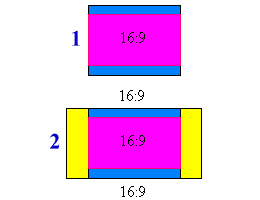Every speaker model has an electrical specification called the “nominal impedance”. Usually, it is 8 Ohms, which means that, not including the speaker cable, the amplifier is presented with 8 Ohms of resistance (impedance) in passing its electrical signal through the speaker. The word nominal means that 8 Ohms is the average impedance. Actually, it varies depending on the frequency of the music, and may range from 3 Ohms up to 20 Ohms across the auditory spectrum. Some speakers have a nominal impedance of 4 Ohms, and others, 6. This is important, because, as the impedance drops, the demand for current to be delivered by the amplifier increases for a specific output level. While the current goes up, the voltage stays the same, and the power requirements at the same signal level go up. This is defined by “Ohm’s Law” which states that E = I R, or Voltage (Volts) = Current (Amps) x Resistance (Ohms), and the Power Function which states that P = E I, or Power (Watts) = Voltage (Volts) x Current (Amps).
You can see from Ohm’s Law that, for a specific amount of voltage, the current will go up if the resistance drops. So, if you change from an 8 Ohm speaker to a 4 Ohm speaker, the current doubles when the voltage is held constant. Then, by the power function, if you want to deliver 100 watts to the 4 Ohm speakers as you did when you had 8 Ohm speakers, the voltage would drop by a factor of Voltage/1.414, while the current would increase by a factor of Current x 1.414, in order for the power to remain at 100 watts. Therefore, if you choose a low impedance speaker (4 Ohms nominal), make sure that your amplifier can supply the current that will be necessary to drive the speaker at high listening levels. On a side note, a since a 4 ohm speaker will draw twice as much power as an 8 ohm speaker at the same signal (voltage) level, even if the efficiency is the same, the sensitivity increases by a factor of 3 dB, so that in a back to back comparison, the 4 ohm speaker may seem more efficient, even though it’s simply just drawing more power.


